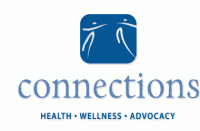McIntyre Center
Drug Rehab Center in Cleveland, Ohio
The McIntyre Center is an accredited addiction treatment facility in Cleveland, Ohio that provides a range of services, such as aftercare, drug rehab, and intensive outpatient care, as well as different levels of care, for individuals struggling with alcohol and/or opioid addiction. The center is certified by the Substance Abuse and Mental Health Services Administration (SAMHSA) and accepts private health insurance.
About This Ohio Facility
Founded in 1985, McIntyre Center is an Addiction Treatment Facility located in Cleveland, Ohio. The center specializes in providing treatment for individuals suffering from alcoholism, opioid addiction, substance abuse, dual diagnosis, and drug addiction. McIntyre Center offers a wide range of treatment options including aftercare support, drug rehab, intensive outpatient, outpatient, partial-hospitalization, and inpatient levels of care. Accredited by the Substance Abuse and Mental Health Services Administration (SAMHSA), McIntyre Center is dedicated to providing high-quality addiction treatment services to help individuals recover and regain control of their lives.
At McIntyre Center, individuals struggling with addiction can find an array of services tailored to their specific needs. The center offers comprehensive drug treatment programs that include counseling, therapy, and support groups. With a focus on promoting recovery and long-term sobriety, McIntyre Center provides aftercare support to help individuals transition back into their daily lives. The facility also offers various levels of care, including inpatient treatment for individuals requiring intensive support and monitoring, as well as outpatient options for those who prefer more flexible treatment schedules. With their expertise in addiction treatment, McIntyre Center is committed to offering effective and compassionate care to help individuals overcome their addiction and achieve lasting recovery.
Genders
Ages
Modality
Additional
Accreditations
SAMHSA
Conditions and Issues Treated
Substance abuse typically leads to addiction, which requires specialized treatment programs at McIntyre Center to address. Many people benefit from inpatient drug rehabilitation, which includes inpatient acute care and residential rehabilitation. Other levels of care include intensive outpatient therapy, individual counseling, and support groups. Family therapy is also an essential part of treatment for substance abuse.
A combination of treatments is often needed to treat drug abuse issues effectively. In the case of drug abuse, there is no easy answer or one-size-fits-all cure.
Opioids are a series of medicines that are used for pain relief. Opioid addiction refers to the compulsive pursuit of opioids, even though they are not medically needed. Medication-assisted therapy at McIntyre Center in Cleveland, OH requires care in which both medications, medication, and behavioral treatments are used.
Levels of Care Offered at McIntyre Center
This center offers a variety of custom treatment tailored to individual recovery. Currently available are Aftercare Support, Drug Rehab, Inpatient, Intensive Outpatient, Outpatient, Partial-Hospitalization, with additional therapies available as listed below.
Inpatient treatment for addiction is generally not as scary as it might sound. It is a way to find recovery while being in a supportive and controlled environment. The duration of treatment at McIntyre Center in Cleveland can be different based on each individual. Many can leave after 28 days; some may stay a few months, and others may stay six months or longer.
An Intensive Outpatient Program like what’s offered at McIntyre Center, targets those who need intensive treatment but would rather get it in the comfort of their homes. The treatment programs vary in duration and intensity. They can be tailored to suit the patient’s needs.
When remaining at their job in Cleveland, or continuing their studies, the individual may live with their family while utilizing McIntyre Center‘s outpatient services. Treatment requires counseling the patient at the individual level, in a group setting, about substance addiction, drugs, and therapy sessions.
A partial hospitalization program offered by McIntyre Center is appropriate for patients in and nearby Cleveland, OH that present acute symptoms of addiction. It’s similar to intensive rehab but runs much shorter because the patients don’t need 24-hour monitoring. Partial hospitalizations generally have more freedom when it comes to family visits.
Aftercare support involves the support given to a Cleveland, Ohio patient after they complete treatment. It helps them adjust to normal life. It may include setting them up in a halfway house and enrolling them in programs like Narcotics Anonymous (NA) and Alcoholics Anonymous (AA). McIntyre Center‘s patients may also be provided with career training to help them get back into the job force.
Therapies & Programs
Couples therapy aims to rebuild the trust between the partners. Partner’s involvement in the process will result in greater chances of treatment success. Couples therapy addresses financial issues, loss of trust, lack of intimacy, and physical abuse.
Family therapy is a set of therapeutic approaches that assumes that the entire family is a system. It utilizes the strengths and resources of the family to help the patient refrain from resorting to substance abuse. The impact of substance abuse is not just on the patient but on the entire family. Family therapy ensures that the patient gets adequate support from the family members after the treatment making the recovery process sustainable
- Family therapy guides all the members of the family to help the patient.
- It helps to repair relationships and improve communication between family members.
- It helps to keep the patient engaged and motivated throughout the treatment.
Group therapy is an important tool in recovery. Finding a peer group in Cleveland, OH and others who relate to your situation is a fundamental tool for recovery at McIntyre Center. Addiction tends to lead to isolation and feelings of uniqueness. The accountability and friendship that is found in group therapy can be more effective than any single other treatment approach. This is generally introduced early in recovery and is recommended as a lifetime treatment habit.
Trauma therapy is a way of addressing trauma while in a safe situation in order to heal. This may involve McIntyre Center managing individual or group counseling or both. Other forms of therapy have been proven to assist in healing past traumas.
Negative feelings are common in substance abuse disorders. If not recognized, they can cause co-occurring disorders. CBT involves strategies that help to change the thinking and behavioral pattern. It can be administered as a monotherapy as well as a part of combination therapy.
Rational Emotive Behavioral Therapy (REBT) is a variation of Cognitive Behavioral Therapy (CBT) that helps people understand how maladaptive, negative, and habitual thoughts and feelings lead to bad life choices. REBT is based on the idea that people operate under many irrational but habitual patterns of thought that fuel harmful practices.
The first three steps depend on the patient, so they are more specific and situational. The succeeding four steps center on practical issues brought on by substance abuse. Steps 8 and 9 deal with the social and emotional repercussions of addiction, encouraging patients to make amends to people they have wronged. These are followed by two steps revolving around the further exploration and reinforcement of Steps 1 to 9.
The last step requires an individual to extend a helping hand to people who are still in the early stages of their recovery.
Payment Options Accepted
For specific insurance or payment methods please contact us.
Is your insurance accepted?
Ask an expert, call (888) 674-0062
Additional Details
Specifics, location, and helpful extra information.
Cleveland, Ohio 44130 Phone Number(440) 887-1100 Meta DetailsUpdated November 25, 2023
Staff Verified
Patient Reviews
There are no reviews yet. Be the first one to write one.
Cleveland, Ohio Addiction Information
Ohio is suffering from a drug abuse problem that is costing thousands of its residents their lives every single year. Opioids, particularly Fentanyl and heroin, are the leading drugs in the state. The state ranks in the top 10 for illicit use of painkillers. Opioid-related overdose rates in Ohio are by far some of the highest in the country.
Cleveland, Ohio's drug addiction problem is very severe. According to recent statistics, over 3,000 hospitalizations related to heroin and fentanyl abuse in Cleveland in 2016 alone. Over 1,100 emergency room visits due to cocaine. In 2016, there were 598 reported cases of HIV/AIDS among people who inject drugs. There are plenty of drug treatment centers to choose from, and the people of Cleveland are friendly and welcoming.
Treatment in Nearby Cities
- Perrysburg, OH (96.3 mi.)
- McArthur, OH (151.8 mi.)
- Grafton, OH (15.8 mi.)
- Springboro, OH (180.3 mi.)
- Wheelersburg, OH (191.6 mi.)
Centers near McIntyre Center
The facility name, logo and brand are the property and registered trademarks of McIntyre Center, and are being used for identification and informational purposes only. Use of these names, logos and brands shall not imply endorsement. RehabNow.org is not affiliated with or sponsored by McIntyre Center.










